
Latin America: Week in Review, Mexico
Mexican Authorities Discover Mass Grave In Durango; Bodies Signal Split In Sinaloa Cartel
May 24, 2011 By Staff
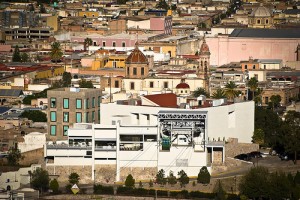
The Mexican city of Durango.
Today in Latin America
Top Story — Police in Mexico discovered a mass grave in a vacant car repair lot in the northern Mexican city of Durango.
The grave, which is the largest mass grave discovered by authorities, contained 89 bodies and was probably used by drug cartels to hold the corpses of executed gang members, kidnap victims and police.
Since April, authorities have unearthed a total of seven mass graves in Durango, a city of almost 600,000, and 308 bodies so far have been recovered. Some of the bodies were put in the ground less than six months ago, while others have been there for over four years.
All seven of the mass graves were located in middle-class neighborhoods and near schools or shops, which raises questions of how local authorities and residents were unaware of the graves.
“Something must have failed, maybe intelligence wasn’t correct or enough because if we had in place a perfectly designed strategy, situations like those that have occurred, and that have caused so much pain and suffering, would not have happened,” said Juan Rosales, the deputy secretary of Durango’s Public Safety Department.
Human rights groups and some local residents worry that local authorities turn a blind eye to the violence that plagues Durango. 17 corrupt police officers were arrested last month for their alleged involvement in the mass graves.
A top Mexican federal police official told the Associated Press that the bodies in the graves were rivals of the Sinaloa cartel, which is currently undergoing an internal power struggle in Durango.
The Sinaloa cartel, lead by the notorious Joaquín “El Chapo” Guzmán and once thought to be the country’s most efficient drug organization, appears to be in the middle of an internal dispute, the official said.
Two local groups recently attempted to break off from the Sinaloa cartel and control the drug shipment routes through Durango. A third group in the city, known as the “M’s,” still remains loyal to Guzmán.
Disputes like the one in Durango “are part of the jockeying that goes on in the world of drug trafficking” and will probably result in increased violence in Durango, said Jorge Chabat, an expert on the Mexican drug trade.
The Sinaloa cartel is already battling the Zetas for control of remote areas of the Durango state, where the cartels can easily hide and grow their products. It is rumored that Guzmán himself is in the mountainous region.
In related news, U.S. authorities announced last week that they broke up a gang in Arizona allegedly working with the Sinaloa cartel.
“This operation has effectively dismantled the Arizona-based transportation and distribution cells of the Jesus Valencia Rodriguez organization,” said Tom Horne, Arizona’s attorney general. “This criminal enterprise was a well-organized operation that constantly worked against law enforcement interdiction efforts with sophisticated counter-surveillance methods, including using human spotters embedded on U.S. soil, night vision equipment and radio communication.”
Just Published at the Latin America News Dispatch
- An estimated 300,000 migrants cross Mexico’s southern border every year on their way to the United States. A network of shelters has developed across Mexico to aid the migrants in their travels. Photographer John Sevigny visited one of these shelters in the northern city of Saltillo and shared these images with us.
Headlines from the Western Hemisphere
North America
- Mexico’s central bank Governor Agustin Carstens announced Monday his proposals for the International Monetary Fund’s policies at an event in Mexico City.
- A corrections officer and four inmates were detained in the northern Mexican state of Nuevo León in the investigation of a prison fire that killed 14 inmates last week.
- Mexican authorities arrested 11 men with alleged ties to the Zetas drug cartel over the weekend in the southeastern state of Tabasco.
Caribbean
- Canadian aircraft sent to Haiti to help in the aftermath of last year’s devastating earthquake suffered mechanical problems that left some sitting idle for days as they awaited replacement parts, according to military reports.
- The U.S. government updated its broadcasts to Cuba via Radio/Television Marti by adopting social media — a practice derided as “cyberterrorism” by the Castro government.
Central America
- Private security guards killed an indigenous person and wounded five other people at a sugar refinery in northern Guatemala, a peasant rights group said.
- Three men were arrested in Guatemala over the weekend for trying to hang banners signed by the Mexican Zetas cartel that seek to justify last week’s massacre of day laborers in the Petén.
- Femicides in El Salvador are reaching epidemic levels, according to a local NGO.
- Police in Honduras said Monday that gunmen shot 70-year-old newspaper manager Manuel Acosta six times as he drove home in Tegucigalpa. Acosta survived the shooting and made it to a hospital.
Andes
- Venezuela is evaluating plans to conserve energy consumption, measures similar to those adopted in the capital city more than a year ago during a national power crisis, the country’s electricity minister said Monday.
- Right-wing lawmaker Keiko Fujimori holds a lead over left-wing Ollanta Humala just two weeks before Peru’s June 5 presidential election, but pollsters say the race could still be won be either candidate.
- Vice President of Ecuador Lenín Moreno said Monday Colombia’s FARC lost its way “a long time ago” and denied that President Rafael Correa accepted money from the guerrillas during his 2006 campaign.
Southern Cone
- Forensic experts in Chile exhumed the body of former President Salvador Allende to determine if he killed himself or was murdered during the 1973 coup.
- A baby drowned and seven people are missing after a boat sank in Lake Paranoa, the artificial lake surrounding a large part of Brazil’s capital.
- Argentine soccer hero Diego Maradona said in a interview Monday that the 1993 Argentine soccer team took banned drugs before a qualifying match against Australia for the 1994 World Cup.
Image: Iván Cabrera @ Flickr.
Subscribe to Today in Latin America by Email
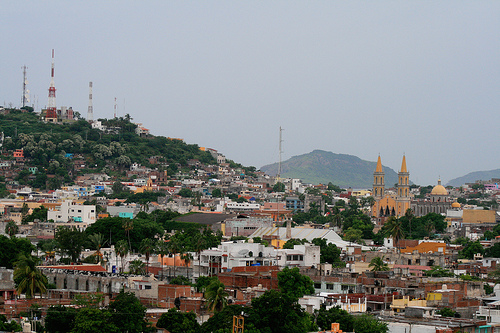
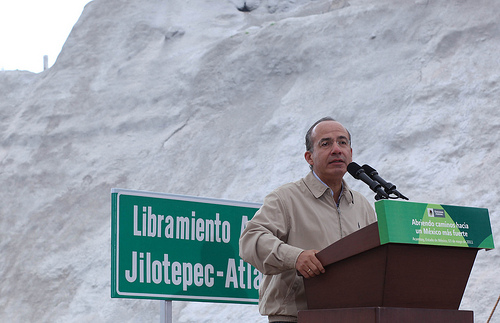
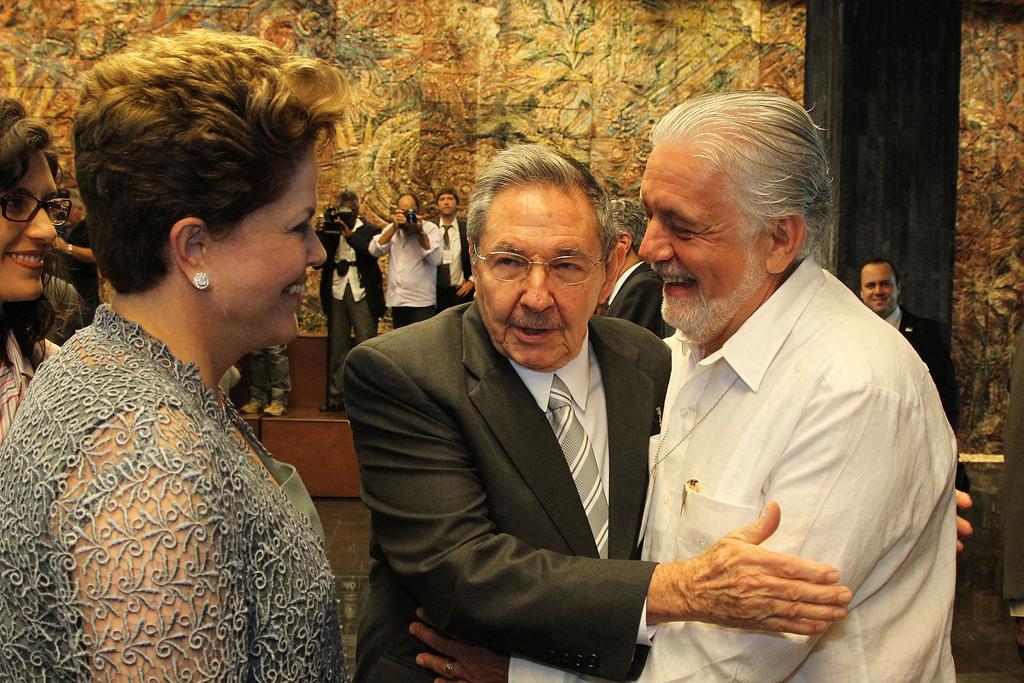
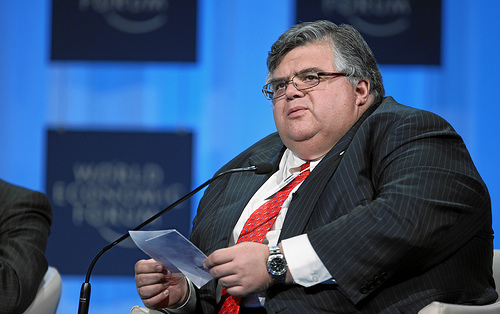
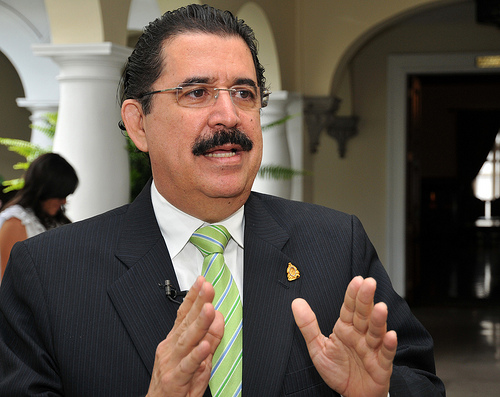
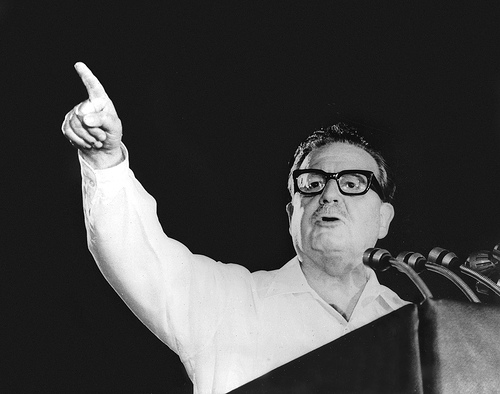
1 Comment
[…] region of Mexico has seen an uptick in drug-related violence in recent months due to an internal split in the powerful Sinaloa […]
Comments are closed.